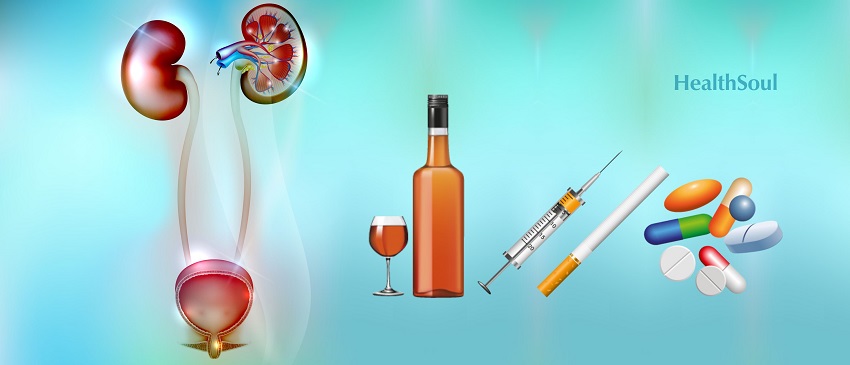Renal and Urinary Disease in the Result of Substance Abuse

Abuse of some substances can lead to renal and urinary diseases. Essentially, some substances damage the kidney and can lead to renal failure when abused. If a person feels or believes they have a problem with substance use or their kidney’s functioning, they should seek professional assistance.
The renal and urinary systems of the body are part of the excretory system. This is the system that is responsible for the elimination of waste products or toxins from the body. It comprises numerous organs including the lungs, kidneys, the liver, sweat glands, and the renal system.
When these organs and systems fail, toxins start to build up in the body. This leads to the damage of body tissues. However, toxins can also cause renal failure when they buildup in the body. Substance abuse can also lead to kidney damage and renal failure. That’s why it’s recommended that some people seek free drug addiction treatment at Addiction Resource, especially when addictive substances start to affect their health.
How Substance Abuse Relates to Renal and Urinary Diseases
Some addictive substances have the potential to damage the renal system and the kidney. Here are some of the substances that lead to renal failure or kidney damage.
- Alcohol– Individuals aged more than 21 years can legally drink alcohol in the United States. However, research has shown that there are many risks associated with alcohol consumption and alcoholism. Alcohol raises blood pressure while dehydrating the body. When these happen consistently, they can lead to kidney damage.
- Benzodiazepines– These are prescription medications that can lead to rhabdomyolysis or muscle breakdown.
- MDMA or Ecstasy– Many people have sought free addiction help after abusing this drug. In addition to producing hallucinations, this drug makes the user lose touch with reality. It also causes renal functioning issues, including causing hyperthermia which leads to dehydration. It can also lead to rhabdomyolysis and renal failure. What’s more, it can cause kidney damage.
- Cocaine– Cocaine works by stimulating the central nervous system. However, it can affect kidney functioning negatively. Chronic and heavy use of cocaine can cause rhabdomyolysis. This entails the breakdown of muscle tissues leading to kidney failure. Research indicates that cocaine abuse leads to adverse systematic effects and it is associated with several renal complications, including acute kidney injuries
- Heroin– Many people enrolled in free substance abuse programs today are struggling with heroin addiction. Although heroin is a highly addictive opioid, the adulterants in it are the main causes of kidney damage. When abused for a long time, this street drug leads to kidney damage via muscle breakdown.
- Inhalants– It’s almost impossible to imagine that a person can seek free drug addiction help after inhaling sprays and fumes from chemicals that are found in most homes. But, chemicals like toluene, gasoline, and correction fluids can lead to renal failure if a toxic amount is inhaled.
Healing from the Renal and Urinary Diseases Caused by Substance Abuse
When struggling with addiction and substance abuse, the rental system can be damaged once the substances accumulate to toxic levels. However, the body can heal and recover when a person enrolls for a free drug treatment program. That’s because the best program provides treatment and therapy that prevents further damage while enabling the body to recover. Thus, a person can recover from the damage caused by substance abuse to lead a healthy, sober life.

